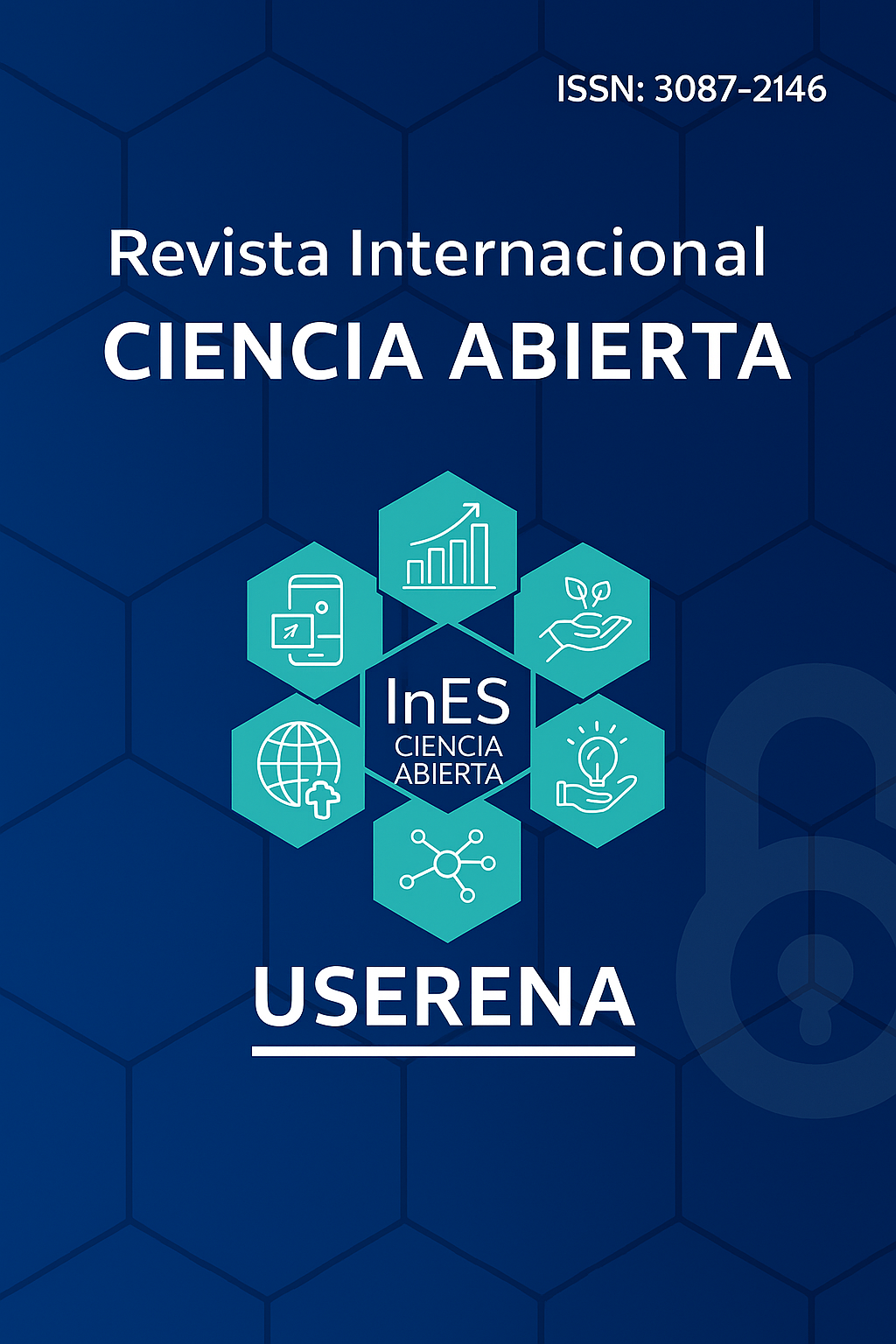Abstract
Open Science is promoted as a pathway to democratize knowledge, but its adoption in Latin America—and particularly in Chile—faces structural obstacles, institutional misalignments, and technical constraints that hinder its transformative implementation. We recognize that various actors have contributed to the advancement of Open Science in the region; however, it is necessary to identify the structural issues that still require coordinated attention clearly. In this essay, focused on the Chilean case, we propose a critical reading of five interconnected challenges: the persistence of reductionist metrics; the disconnection between openness requirements and institutional structures; the absence of a coherent national policy; the material gaps that prevent real equity; and the risks of adopting technologies without sovereignty or contextual adequacy. We argue that equity, traceability, and ethical governance do not emerge automatically—they must be constructed as deliberate practices, institutionally sustained through technical, political, and ethical frameworks. In response to the normative instrumentalization of openness, we propose a form of Open Science that is situated, distributed, and sustained—one that articulates epistemic justice, participatory governance, and institutional transformation.
References
Agencia Nacional de Investigación y Desarrollo. (2025). ANID Action Plan Supporting CoARA Commitments 2024—2026 (Versión 1.0). Zenodo. https://doi.org/10.5281/ZENODO.15692849
ANID. (2022). Política de acceso abierto a la información científica y a datos de investigación financiados con fondos públicos de la ANID. Gobierno de Chile. https://s3.amazonaws.com/documentos.anid.cl/estudios/Politica_acceso_a_informacion_cientifica_2022.pdf
ANID. (2023, noviembre 10). ANID es la primera ONCYT de Latinoamérica miembro de CoARA. ANID. https://anid.cl/anid-es-la-primera-oncyt-de-latinoamerica-miembro-de-coara
Araya-Pizarro, S., & García-Leal, H. (2025). Factores clave en la práctica de la Ciencia Abierta. Un análisis multivariado en el contexto universitario. Información, cultura y sociedad, 52, Article 52. https://doi.org/10.34096/ics.i52.14804
Bahlai, C., Bartlett, L. J., Burgio, K. R., Fournier, A. M. V., Keiser, C. N., Poisot, T., & Stack, K. W. (2019, enero 30). Open Science Isn’t Always Open to All Scientists. American Scientist. https://www.americanscientist.org/article/open-science-isnt-always-open-to-all-scientists
Banzato, G., Rozemblum, C., & Chávez Ávila, S. (2022). Ni ángel diamante, ni demonio APC. Diversidad de modelos de gestión y financiación en las revistas científicas iberoamericanas en Acceso Abierto. Informatio, 27(1), 113–141. https://doi.org/10.35643/Info.27.1.8
Berger, M. (2021). Bibliodiversity at the Centre: Decolonizing Open Access. Development and Change, 52(2), 383–404. https://doi.org/10.1111/dech.12634
Brasil, A. (2023, diciembre 5). Resumen de ciencia abierta: Noviembre de 2023. International Science Council. https://es.council.science/blog/open-science-round-up-november-2023
Carroll, S. R., Garba, I., Figueroa-Rodríguez, O. L., Holbrook, J., Lovett, R., Materechera, S., Parsons, M., Raseroka, K., Rodriguez-Lonebear, D., Rowe, R., Sara, R., Walker, J. D., Anderson, J., & Hudson, M. (2020). The CARE Principles for Indigenous Data Governance. Data Science Journal, 19, 43. https://doi.org/10.5334/dsj-2020-043
Debat, H., & Babini, D. (2020). Plan S in Latin America: A Precautionary Note. Scholarly and Research Communication, 11(1), 12. https://doi.org/10.22230/src.2020v11n1a347
DORA. (2012). San Francisco Declaration on Research Assessment. DORA. https://sfdora.org/read/
European Commission. (2019, junio 26). H2020 Programme. AGA – Annotated Model Grant Agreement. Version 5.2. https://ec.europa.eu/research/participants/data/ref/h2020/grants_manual/amga/h2020-amga_en.pdf
European Commission. (2025, marzo 28). European Open Science Cloud (EOSC). European Open Science Cloud (EOSC) - European Commission. https://research-and-innovation.ec.europa.eu/strategy/strategy-research-and-innovation/our-digital-future/open-science/european-open-science-cloud-eosc_en
Fanelli, D. (2013). Positive results receive more citations, but only in some disciplines. Scientometrics, 94(2), 701–709. https://doi.org/10.1007/s11192-012-0757-y
Hartley Belmar, R. (2024, septiembre 13). Significando la Ciencia Abierta desde el reuso: Ejemplos de desafíos en la calidad de metadatos en productos de investigación. Foro Latinoamericano de Ciencia Abierta, Universidad Andina Simón Bolívar. Quito, Ecuador.
Hartley Belmar, R. (2025, marzo 26). The Domino Effect of Faulty Metadata: Why Open Source Analysis Demands Metadata Vigilance. Forensic Scientometrics. https://fosci.substack.com/p/the-domino-effect-of-faulty-metadata
Hartley Belmar, R., & Abedrapo Rosen, I. (2025). Políticas Relacionadas con Repositorios de Datos Científicos: Chile. https://doi.org/10.5281/ZENODO.15648532
Henriquez, T. (2023). Open peer review, pros and cons from the perspective of an early career researcher. mBio, 14(5), e01948-23. https://doi.org/10.1128/mbio.01948-23
Hicks, D., Wouters, P., Waltman, L., de Rijcke, S., & Rafols, I. (2015). Bibliometrics: The Leiden Manifesto for research metrics. Nature, 520(7548), 429–431. https://doi.org/10.1038/520429a
Kochetkov, D. (2025). Peer Review at the Crossroads. OSF. https://osf.io/b2ra3_v2
Ma, L. (2025). The limits of openness: Global knowledge production and its boundaries. Journal of Documentation, 81(7), 121–134. https://doi.org/10.1108/JD-09-2024-0237
Melero, R., Boté-Vericad, J.-J., & López-Borrull, A. (2023). Perceptions regarding open science appraised by editors of scholarly publications published in Spain. Learned Publishing, 36(2), 178–193. https://doi.org/10.1002/leap.1511
Mongeon, P., & Paul-Hus, A. (2016). The journal coverage of Web of Science and Scopus: A comparative analysis. Scientometrics, 106(1), 213–228. https://doi.org/10.1007/s11192-015-1765-5
Montenegro, R. P. (2023, julio 28). Desarrollo de un protocolo validado de integración e interoperabilidad entre el Repositorio institucional de la ANID y repositorios institucionales universitarios. Open Infrastructure Fund / Fondo de Infraestructura Abierta. https://openreview.net/forum?id=mZFnHLnpIz
Muller, J. Z. (with JSTOR (Organization)). (2018). The tyranny of metrics. Princeton University Press.
Nationaal Programma Open Science. (2022, diciembre 7). Open Science 2030 in the Netherlands: NPOS2030 Ambition Document and Rolling Agenda. https://www.openscience.nl/sites/open_science/files/media-files/final_npos2030_ambition_document_and_rolling_agenda.pdf
Nelson, A. (2022, agosto 25). Memorandum for the heads of executive departments and agencies: Ensuring Free, Immediate, and Equitable Access to Federally Funded Research. Office of Science and Technology Policy. https://bidenwhitehouse.archives.gov/wp-content/uploads/2022/08/08-2022-OSTP-Public-Access-Memo.pdf
Pardo-Guerra, J. P. (2022). The quantified scholar: How research evaluations transformed the British social sciences. Columbia University Press.
Rushforth, A., Sivertsen, G., Wilsdon, J., Bin, A., Firth, C., Fraser, C., Gogadze, N., Harris, L., Holm, J., Kolarz, P., Koley, M., Maldonado, J., Nienaltowski, M.-H., Rovelli, L., Salles-Filho, S., Sarlo, S., Sarthou, N., Vasen, F., Ward-Boot, N., … Zhang, L. (2025). A new typology of national research assessment systems: Continuity and change in 13 countries. RoRI Working Paper No.15. Research on Research Institute. https://doi.org/10.6084/m9.figshare.29041787.v4
Vanderfeesten, M., & Waegemaekers, E. (2025). SURF Open Research Information (ORI) Program 2025—2030 (Versión 1.0). SURF. https://doi.org/10.5281/ZENODO.15772562
W.J.S.M. Van Wezenbeek, H.J.J. Touwen, A.M.C. Versteeg, & A.J.M. Van Wesenbeeck. (2017). Nationaal plan open science. Ministerie van Onderwijs, Cultuur en Wetenschap. https://doi.org/10.4233/UUID:9E9FA82E-06C1-4D0D-9E20-5620259A6C65

This work is licensed under a Creative Commons Attribution 4.0 International License.
Copyright (c) 2025 Ricardo Hartley-Belmar, Isabel Abedrapo-Rosen, Leandro Torres-Díaz

